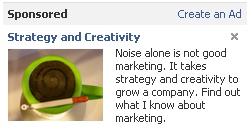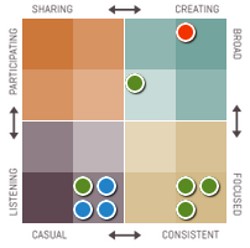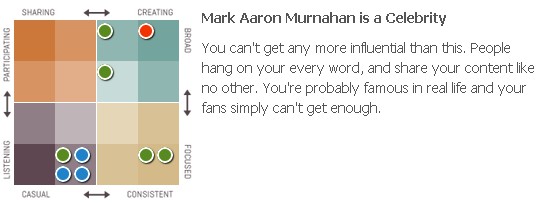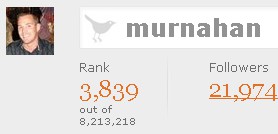
Even if you are the least tech-savvy person since my mother, it is clear that you will see this company popping up in more places during 2011. The name, “Disqus” (pronounced as discuss) is spread far and wide across the Internet, and its exposure is growing quickly as top tech and news blogs implement the service.
In November 2010 TechCrunch reported that there were over 500,000 communities using Disqus for more than 160 million conversations between 18 million profiles. According to Quantcast, Disqus is moving up quickly. Maybe you are not so sure about its importance just yet, but I am, and I want to share why Disqus is quickly climbing my list of favorite social networking tools.
I named Disqus a while back in an article titled “6 Essential Blogging Tools for Bloggers and Non-Bloggers” and that is certainly worth a read. Since the time I wrote that back in March 2010, my opinion of Disqus is better than ever.
The idea of using Disqus as a networking tool may sound completely off the wall to the many people who never heard of Disqus or took the time to understand its greater value. Likewise, sending a bunch of Twitter updates sounded pretty absurd in 2007, but we all watched how Twitter took off. I suppose I don’t need to say much about Facebook. The 650 million Facebook users pretty well sum up the public interest in that platform. So, how can Disqus be placed in the company of these massively adopted networks? I will explain, and I think you will have a much different view of the service by the time I am done.
Disqus will not become the next Facebook, threaten Twitter, or replace LinkedIn. What Disqus can do is to tighten people’s existing networks and create many opportunities for new and stronger network connections.
In the face of social networking becoming “looser” than ever for a lot of people, tighter networks of like-minded people are not only important, but something many Internet users are begging for. Disqus delivers on this need, in a big way, for people who choose to use it.
Let’s take an under-the hood look at Disqus for a moment. A lot of people may simply see Disqus as the commenting system on some of their favorite blogs, but completely overlook its best assets. First, let me explain what Disqus is, on the surface, for people who are unfamiliar. Then I will move on to the reason that Disqus is useful for networking, far beyond just its value to blog administrators.
What is Disqus?
Disqus is a service that is used by many blogs for moderating and responding to readers’ comments. It allows users to comment on blogs the “old fashioned” way, by entering their name, email, website address, and comment, or they can choose to use their photo and information based on a variety of other profiles, such as Facebook, Twitter, Yahoo, OpenID, or simply their Disqus profile.
Optionally, readers can choose to share their comment, on a comment-by-comment basis, with their extended network. This is good for readers to share their point of view, and also good for bloggers who enjoy their work being shared. It is a win-win relationship.
Disqus provides for real-time updating of comments. In an active discussion, this allows readers to see new comments without even refreshing the page.
Disqus also provides options for users to receive updates of replies to their comments by email, or simply within their “Disqus Dashboard” where there is a section titled “Replies to you”. It makes blog commenting more interactive than ever, and opens a lot of possibilities for people willing to look three inches beyond their nose. It is a lot easier than other methods of subscribing to follow a thread, and much tidier for monitoring replies.
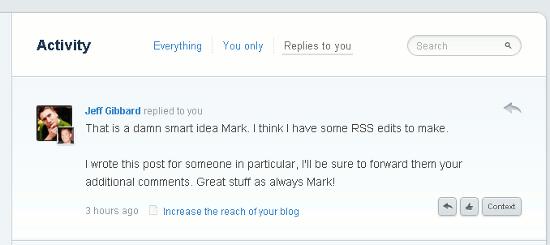
Disqus Creates Deeper Conversations!
Maybe you have hoped that posting a link on Twitter or Facebook to an article that you read will give people a feel for what you like, what interests you, and what you read. The trouble with this is when it leaves them hanging without knowing what you thought of it. Believe me when I say that most people are not going to dig through the comments to see what you said about something. Most of the time, they will not even click to see the article, but rather draw conclusions and comment on the title.
Maybe you can add in a little bit of flair with your commentary, but then the conversation is all broken up between the article, the shortness of a Twitter post, and your Facebook comments versus the comments of the other people who read the blog. That all tends to create a lot of off-topic discussion, and dilutes what you and others had to say about the topic.
On the other hand, if somebody sees it in your Disqus profile and follows what you read and have to say on a topic, the whole character starts to change. Disqus makes it very easy to follow other people. It is a chance for others to be more involved in your conversations around the web. If they like communicating with you, it can give a good feel for who you are and your points of view. It can also help you to gain a closer relationship with the people you choose to interact with. For example, if you happen to come across my political views, you may find that I am feisty but fair. If you come across my business views, you may find that I read carefully, think a whole lot, and try to bring a my ideas to the discussion.
It is noteworthy that commenting on a blog article reflects a greater commitment than most other social networking quips and snippets that people leave behind. Blog comments are commonly lengthier and more thought out about a specific topic than comments elsewhere. It really does generally allow for a closer sense of a person’s views on a topic. I invite you to see an example of this in my Disqus profile. If you click on “Activity” at the top, you can scroll through and see comments I have made here and on other blogs.
Turn Any Website Into a Blog
I can point out a lot of reasons that Disqus is growing quickly, and this is certainly a big one. Disqus makes it simple to add commenting to any existing website. With their simple “Universal Code” Disqus commenting system can be added to any web page.
Let’s say you have a boring old static website and you want to add commenting to a page, or a set of pages. There is more to a blog than the commenting features, but many people would consider comments the most obvious feature of blogs. Disqus makes it simple to add their commenting system to any boring old website, and has excellent code and documentation for many popular platforms. They have made it extremely easy, even for a relatively novice web developer.
Disqus Security Considerations
You can certainly post on blogs using Disqus with an alias, or anonymously, but the things you have to say are the things which interest people. It is really not much fun to have people like you for one reason, but then find out they think you are horrible when they dig a bit deeper. If you posted it anywhere on a blog and somebody wants to find it, they will find it. This is the Internet, and most bloggers do their best to be sure a lot of people will see it. I think of this in a way similar to my article titled “Facebook Privacy Fears Are Absurd!“. Living in the fear of your own shadow is something that will be there with or without Disqus.
I guess this realistic view of the Internet and social media is why “social media transparency” has become such an overused buzzphrase.
Disqus and SEO
I know that a lot of people wonder about how Disqus affects search engine results, whether as a blog administrator, or as a commenter. I would stop at simply pointing out that I use it here on my SEO and Social Media Marketing blog, but that may not be enough to comfort you.
Many people who comment on blogs really love those links to their website they leave behind. After all, more links is a good thing. Disqus still allows you to leave your link, and it is still as valuable from an SEO standpoint as any other commenting system … perhaps even better. I may write about this at a later time, but I can tell you that the comments are well-indexed in search engines, and the links associated with those comments are also just as valuable as any other commenting system.
What I think sometimes confuses people about Disqus links is in the layout for non-logged-in “Guest” users. Disqus simply shows a “post as” link, but once you type your comment, you have the opportunity to add your website link and your Gravitar.
Disqus creates multiple links. If you click on the thumbnail picture of a user, it will show you their Disqus profile information, including their other communities and even their most recent Twitter update, if they associated their Twitter account. If you click on their name, it will link directly to their website of choice. If they have associated their Twitter account with their Disqus profile and you click to share your comment on Twitter, it will also send a reply to their Twitter username.
Disqus Signup and Other Links
If you made it this far, you are probably pretty curious to look a bit closer at Disqus. Here are some links to get your started.
- Create a Disqus Profile
- Explore the Disqus Community
- Popular Disqus Features
- Developer and Implementation Documents
I could keep writing all day to help you understand the ways to get the most from Disqus. There are a lot of excellent potential uses. For example, you can search with an email address to see what a person is saying on other blogs … did you know that? I wrote a 140 page book about Twitter, but I don’t plan to repeat that with Disqus. Instead, I will share what they say in their own words, invite you to discuss this, and happily answer your questions and comments. Here is what Disqus has to say:
Disqus (dis·cuss • dï-sküs’) is all about changing the way people think about discussion on the web. We’re big believers in the conversations and communities that form on blogs and other sites.
Now what do you have to say? Here is your chance to use Disqus and jump in the conversation. Please add your comments and don’t be shy. Another great feature of Disqus is that if you screw it up, you can go back and edit the comment.
Podcast: Play in new window | Download

